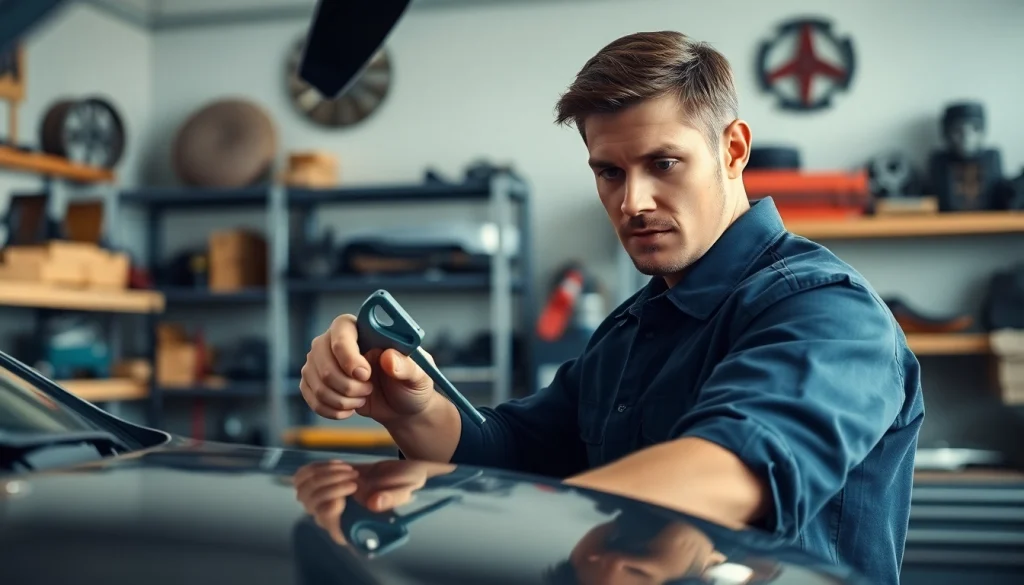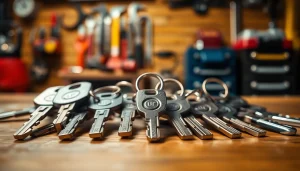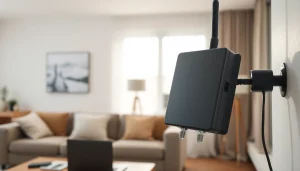
Understanding the Keys Locked in Car Scenario
Finding oneself in the predicament of having Keys Locked in Car can be both frustrating and stressful. Many drivers have experienced this scenario at some point, not only feeling panicked but often unsure how to proceed. This article will provide insights into common causes of lockouts, potential consequences of locking keys inside a vehicle, and immediate steps to take when this unfortunate event happens.
Common Causes of Lockouts
Understanding the primary reasons behind locking keys in your car can help in taking preventative measures. Some of the most commonly reported causes include:
- Distraction: Often, people may get distracted while unloading groceries or attending to their children and inadvertently lock their keys inside.
- Faulty Lock Mechanisms: Mechanical issues with door locks might cause them to function improperly, potentially locking keys inside the car during the attempt to secure the vehicle.
- Rushing: In a hurry, individuals sometimes skip checking if they have their keys before closing the door, leading to a lockout.
- Key Fob Malfunctions: Modern cars often come with keyless entry systems. If the battery in the key fob dies, it may simultaneously disable your ability to unlock the car doors, accidentally resulting in a lockout.
Consequences of Locked Keys in Car
Locking keys inside a vehicle can have several consequences that extend beyond mere inconvenience. These may include:
- Time Loss: The immediate consequence is wasted time, which can lead to tardiness for important commitments or events.
- Emotional Stress: The anxiety of being stuck can induce stress levels, particularly when you are alone or in a vulnerable location.
- Financial Costs: Using a locksmith or roadside assistance service can incur unexpected costs, adding financial strain during an already stressful moment.
- Risk of Damage: In their urgency to access their vehicles, some individuals may try dangerous or hurried DIY methods that can damage the lock, door, or window.
Initial Steps to Take Immediately
Upon realizing your keys are locked inside your vehicle, it is crucial to remain calm. Here are the initial steps to take:
- Assess Your Situation: Spend a moment to collect your thoughts. Check if your vehicle has any hidden spare keys or access points (such as a trunk that may remain unlocked).
- Consider DIY Methods: Depending on the car’s make and model, there may be some do-it-yourself methods to consider before calling for help, but be cautious to avoid damaging your vehicle.
- Contact a Friend or Family Member: If you have someone nearby, reaching out for assistance may be the quickest route to resolution. They may have a spare key or might be able to come to assist you.
- Call for Professional Help: If all else fails, contact a locksmith or roadside assistance service familiar with unlocking vehicles securely.
DIY Methods for Retrieving Keys Locked in Car
Before seeking professional help, there are several methods you can try to retrieve keys locked in your car using common household items. Below are some effective techniques:
Using Household Items Effectively
Several everyday items can assist in unlocking a car door, particularly for older models that do not have sophisticated locking systems:
- The Slim Jim: This tool is commonly used in locksmithing. It can be tricky but is highly effective when applied correctly. Slide the Slim Jim between the window and the weather stripping to manipulate the lock mechanism.
- Coat Hanger: An unlocked door can often be opened by maneuvering a straightened wire coat hanger into the car. Form a hook on one end to grab the unlock lever inside the door.
- String or Fishing Line: If the vehicle has a manual locking mechanism, using a long, thin object may allow you to lift the lock directly by inserting it through a slightly open window.
Safe Techniques to Unlock Your Car
While DIY methods can be tempting, it’s crucial to focus on safety to avoid damaging your vehicle:
- Always assess the potential risks of any DIY method.
- Avoid using excessive force or tools that require brute strength, as they can result in irreversible damage.
- Make sure your actions comply with local laws and regulations regarding vehicle access.
When Not to Attempt a DIY Solution
There are certain situations in which attempting to unlock your vehicle yourself is not recommended:
- If your vehicle has advanced locking systems, such as electronic locks, it’s best to leave it to professionals.
- When the need for urgency exceeds the option for safe methods, waiting for professional assistance may save you from further stress.
- If you suspect that attempting DIY methods may lead to damage, consider contacting a locksmith first instead.
Professional Services for Keys Locked in Car
When all DIY methods fail, professional assistance is often the best choice. Understanding your options can save time and money while providing peace of mind:
Finding a Trusted Locksmith
Choosing a reliable locksmith can affect both the outcome of the situation and the associated costs:
- Research Local Options: Check reviews and testimonials to identify locksmiths with established reputations in your area.
- Verify Credentials: Confirm that any locksmith you consider is licensed and insured to avoid potential scams.
- Ask About Services Offered: Inquire if the locksmith specializes in automotive lockouts and their experience with your car model.
Roadside Assistance Options
Many insurance policies, as well as automobile clubs, offer roadside assistance services that include vehicle lockout help. Here’s how to make the most of these services:
- Know Your Coverage: Review your insurance policy to ensure it covers lockout assistance; some policies may offer limited resources.
- Have Information Ready: When contacting roadside assistance, be prepared to provide your location, vehicle make and model, and confirm that the vehicle is locked with keys inside.
- Response Times: Understand that while most roadside assistance services aim for a quick response, it could still take time depending on their workload and traffic conditions.
Costs Associated with Professional Help
While professional help is generally more reliable for retrieving locked keys, it’s essential to understand the potential costs involved:
- Basic Charges: Expect to pay a base fee for the service, which may vary depending on time of day and location.
- Additional Fees: If complications arise, such as needing specialized tools, additional charges might be incurred.
- Insurance Options: Check if your car insurance provider covers any of these costs—this could save you a substantial amount during emergencies.
Preventative Measures to Avoid Future Lockouts
After recovering your keys, it’s a good idea to implement strategies to prevent future occurrences. Here are some effective preventative measures:
Smart Key Solutions and Technology
Advancements in technology can help reduce the risk of lockouts significantly:
- Keyless Entry Systems: Modern vehicles often come with key fobs or smartphone connectivity, allowing you to unlock your vehicle without conventional keys.
- Create Redundant Access Solutions: Consider having multiple key fobs or a physical spare key accessible in designated locations.
- Remote Vehicle Access: Some vehicles allow you to unlock them remotely via smartphone apps—these can be invaluable in case of emergencies.
Creating Backup Plans for Access
Implementing a plan for quick access in case of lockouts can mitigate anxiety:
- Spare Key Options: Keep spare keys in secure yet accessible locations negotiated with trusted family or friends.
- Uniform Access: Consider a master key system if you have multiple family members who may need access to the vehicle.
- Invest in Key Management Tools: Products like key safes can offer secure storage solutions for spare keys at home.
Best Practices for Vehicle Maintenance
Regular vehicle maintenance can prolong your car’s locking mechanisms, reducing the risk of lockouts:
- Routine Inspections: Conduct regular checks on your car’s locks to ensure they function correctly without any mechanical hindrance.
- Battery Maintenance: For vehicles with electronic locks, keeping batteries in good condition is crucial for reliable access.
- Awareness of Wear and Tear: Watch for signs of wear or malfunction in locking systems, and address them immediately to avoid future issues.
Emergency Contacts and Resources
It’s essential to have a list of emergency contacts readily available to handle lockout scenarios efficiently:
Who to Call for Help
Keep a roster of contacts that may assist during a lockout situation:
- Local locksmiths who specialize in vehicle entry;
- Roadside assistance services included in your insurance policy; and
- Friends or family members who may have spare keys or transportation options.
Mobile Apps for Quick Assistance
Several mobile applications can help in emergencies, allowing you to find nearby locksmiths or request roadside assistance with a few taps. These apps can not only save time but provide peace of mind when faced with stressful situations.
Support from Local Authorities
In certain situations, local law enforcement may assist with lockouts, especially if there is a potential risk to someone’s safety. Keep in mind, however, that response times may vary and it’s essential to use this option only when absolutely necessary.





